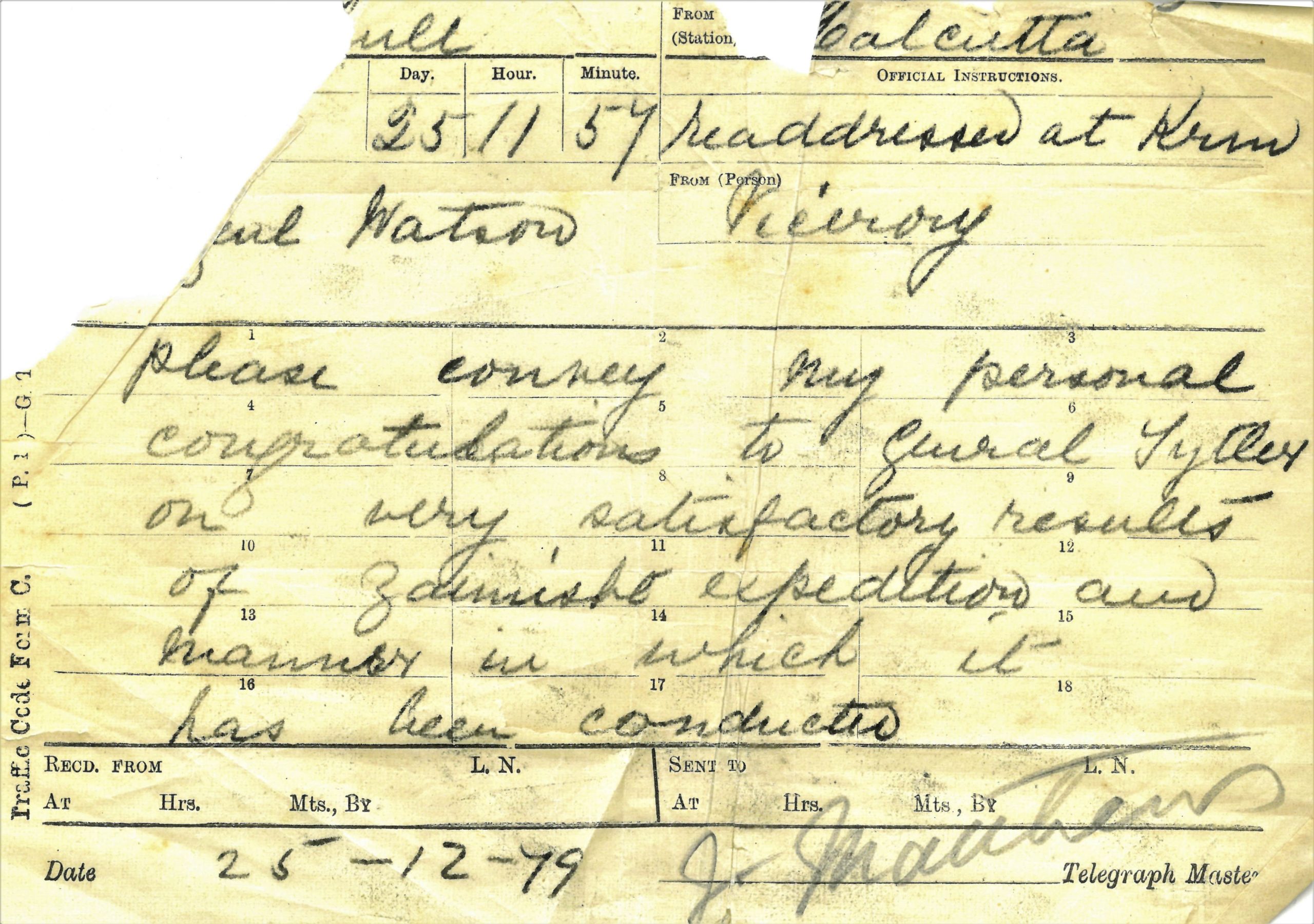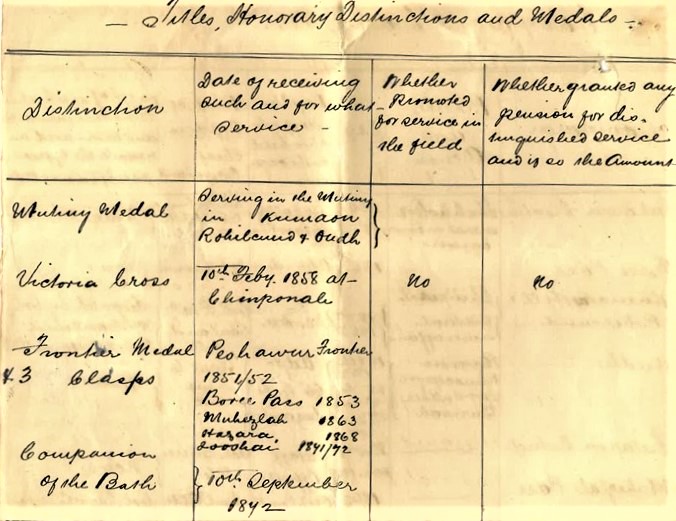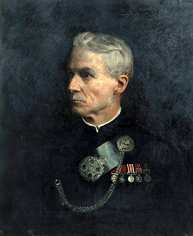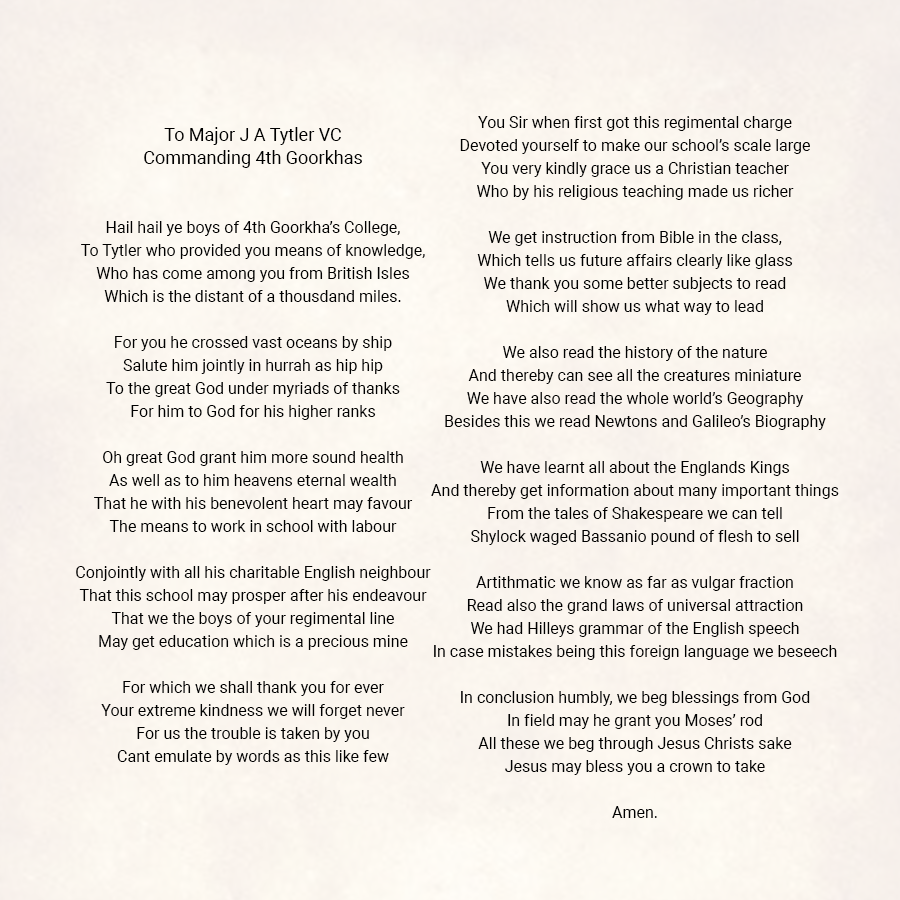The Victoria Cross
During and immediately after the event often referred to as the Indian Mutiny of 1857 Tytler saw service in the hills round Naini Tal. On 17th September 1857, with seventy men of the 66th, he played a major part in the defeat of some one thousand rebel soldiers attacking Haldwani. In early February 1858, the 66th were again deployed at Haldwani against two large rebel forces. On 9th February 1858 Lieutenant Tytler was with five hundred men of the 66th. His force, along with two hundred and ten other infantry, two hundred cavalry, and two six-pounder guns, surprised a rebel force many times larger at Charpura. The next day, two companies of the 66th, under the command of Captain Ross, advanced steadily against the rebel right flank in the face of heavy fire from the enemy guns and it was in this attack that Lieutenant Tytler distinguished himself. The citation in the London Gazette of 24th August 1858 read:
“On the attacking parties approaching the enemy’s position under a heavy fire of round shot, grape, and musketry, on the occasion of the Action at Choorpoorah, on the 10th February last, Lieutenant Tytler dashed on horseback ahead of all, and alone, up to the enemy’s guns, where he remained engaged hand to hand, until they were carried by us; and where he was shot through the left arm, had a spear wound in his chest, and a ball through the right sleeve of his coat. [Letter from Captain C. C.G. Ross, Commanding 66th (Goorkha) Regiment, to Captain Brownlow, Major of Brigade, Kemaon Field Force].”
For this act of valour, Lieutenant Tytler was awarded the Victoria Cross. This VC was the first to be won by an officer of a Goorkha Regiment.
Post Victoria Cross Career
In 1863, Tytler was given command of the 4th Goorkha Regiment, which had been raised in 1857 from a draft of officers and men from the 1st Goorkha Regiment. He remained in command of it for seventeen years and under him the Regiment earned a reputation for being one of the smartest and most accurate regiments in the Indian Army. Ever a soldier, he was twice Mentioned in Despatches, and for services in the Looshai campaign, was appointed a Companion of the Order of the Bath in 1872.
During the 2nd Anglo-Afghan War he commanded a Brigade on the North West Frontier with the rank of Brigadier General. He was tasked with ensuring the communications to the British forces under General Sir Samuel Browne, regularly leading raids into the local areas to prevent attacks by local Afridi tribal groups. Over the course of the war his health declined, due to years of campaigning and injury, but still placed himself at the disposal of the Viceroy for further service and was placed in charge of a successful expedition against the Zaimusht tribal group. The manouveres of this expedition involved what Tytler would later describe as ‘[moving up] the most difficult [defile] I have ever traversed’, in order to dislodge enemy fighters from their positions. For this expedition he was personally thanked by the Viceroy, (in a telegram sent only two months before Tytlers death).
Despite his military successes Tytler’s health continued to decline and he died from pneumonia whilst on campaign on 14th February 1880 aged 54. Brigadier-General John Tytler thus became the second Gurkha regiment V.C. recipient to die, following the 4th recipient, Captain John Cook, who was killed on operations in Afghanistan in December 1879, barely two months earlier.


(Left) Telegram from the Viceroy of India congratulating Tytler, on Christmas Day several months before Tytler’s death. (Right) The Service Record List of Tytler’s Medals, including his VC.

 John Adam Tytler was born at Monghyr, Bengal, on 29th October 1825, the third son of Dr John Tytler, a surgeon in the service of the East India Company. In 1837, his father died and he and his mother went to live in Edinburgh, where John attended College. He was also related to the famous Sir Alexander ‘Bukhara’ Burnes, the British political agent who had played a role in the first British Invasion of Afghanistan and who had been killed in Kabul in 1841.
John Adam Tytler was born at Monghyr, Bengal, on 29th October 1825, the third son of Dr John Tytler, a surgeon in the service of the East India Company. In 1837, his father died and he and his mother went to live in Edinburgh, where John attended College. He was also related to the famous Sir Alexander ‘Bukhara’ Burnes, the British political agent who had played a role in the first British Invasion of Afghanistan and who had been killed in Kabul in 1841.


